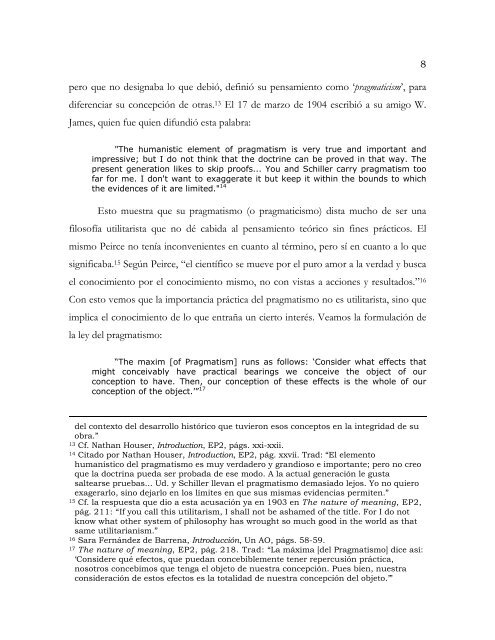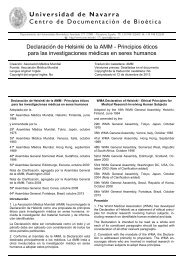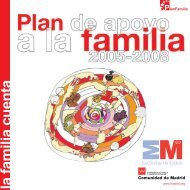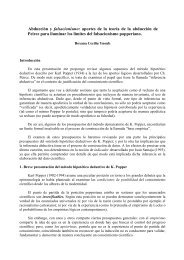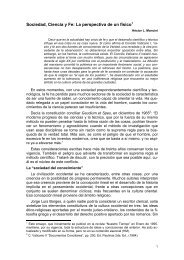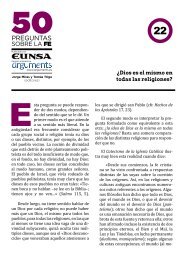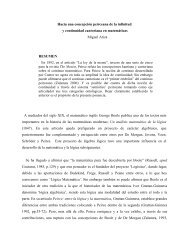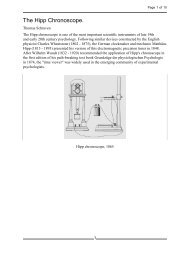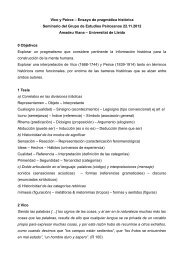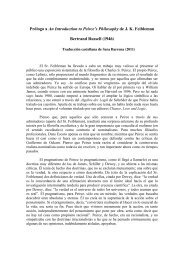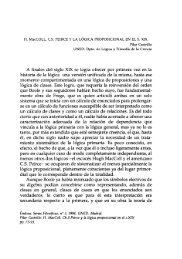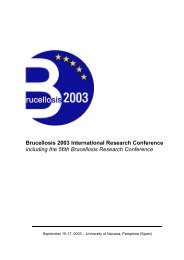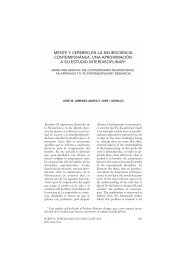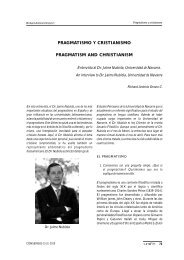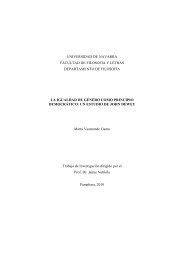Aportes filosóficos de Charles Sanders Peirce - Universidad de ...
Aportes filosóficos de Charles Sanders Peirce - Universidad de ...
Aportes filosóficos de Charles Sanders Peirce - Universidad de ...
You also want an ePaper? Increase the reach of your titles
YUMPU automatically turns print PDFs into web optimized ePapers that Google loves.
8<br />
pero que no <strong>de</strong>signaba lo que <strong>de</strong>bió, <strong>de</strong>finió su pensamiento como ‘pragmaticism’, para<br />
diferenciar su concepción <strong>de</strong> otras. 13 El 17 <strong>de</strong> marzo <strong>de</strong> 1904 escribió a su amigo W.<br />
James, quien fue quien difundió esta palabra:<br />
"The humanistic element of pragmatism is very true and important and<br />
impressive; but I do not think that the doctrine can be proved in that way. The<br />
present generation likes to skip proofs... You and Schiller carry pragmatism too<br />
far for me. I don't want to exaggerate it but keep it within the bounds to which<br />
the evi<strong>de</strong>nces of it are limited." 14<br />
Esto muestra que su pragmatismo (o pragmaticismo) dista mucho <strong>de</strong> ser una<br />
filosofía utilitarista que no dé cabida al pensamiento teórico sin fines prácticos. El<br />
mismo <strong>Peirce</strong> no tenía inconvenientes en cuanto al término, pero sí en cuanto a lo que<br />
significaba. 15 Según <strong>Peirce</strong>, “el científico se mueve por el puro amor a la verdad y busca<br />
el conocimiento por el conocimiento mismo, no con vistas a acciones y resultados.” 16<br />
Con esto vemos que la importancia práctica <strong>de</strong>l pragmatismo no es utilitarista, sino que<br />
implica el conocimiento <strong>de</strong> lo que entraña un cierto interés. Veamos la formulación <strong>de</strong><br />
la ley <strong>de</strong>l pragmatismo:<br />
“The maxim [of Pragmatism] runs as follows: ‘Consi<strong>de</strong>r what effects that<br />
might conceivably have practical bearings we conceive the object of our<br />
conception to have. Then, our conception of these effects is the whole of our<br />
conception of the object.’” 17<br />
<strong>de</strong>l contexto <strong>de</strong>l <strong>de</strong>sarrollo histórico que tuvieron esos conceptos en la integridad <strong>de</strong> su<br />
obra.”<br />
13 Cf. Nathan Houser, Introduction, EP2, págs. xxi-xxii.<br />
14 Citado por Nathan Houser, Introduction, EP2, pág. xxvii. Trad: “El elemento<br />
humanístico <strong>de</strong>l pragmatismo es muy verda<strong>de</strong>ro y grandioso e importante; pero no creo<br />
que la doctrina pueda ser probada <strong>de</strong> ese modo. A la actual generación le gusta<br />
saltearse pruebas... Ud. y Schiller llevan el pragmatismo <strong>de</strong>masiado lejos. Yo no quiero<br />
exagerarlo, sino <strong>de</strong>jarlo en los límites en que sus mismas evi<strong>de</strong>ncias permiten.”<br />
15 Cf. la respuesta que dio a esta acusación ya en 1903 en The nature of meaning, EP2,<br />
pág. 211: “If you call this utilitarism, I shall not be ashamed of the title. For I do not<br />
know what other system of philosophy has wrought so much good in the world as that<br />
same utilitarianism.”<br />
16 Sara Fernán<strong>de</strong>z <strong>de</strong> Barrena, Introducción, Un AO, págs. 58-59.<br />
17 The nature of meaning, EP2, pág. 218. Trad: “La máxima [<strong>de</strong>l Pragmatismo] dice así:<br />
‘Consi<strong>de</strong>re qué efectos, que puedan concebiblemente tener repercusión práctica,<br />
nosotros concebimos que tenga el objeto <strong>de</strong> nuestra concepción. Pues bien, nuestra<br />
consi<strong>de</strong>ración <strong>de</strong> estos efectos es la totalidad <strong>de</strong> nuestra concepción <strong>de</strong>l objeto.’”


